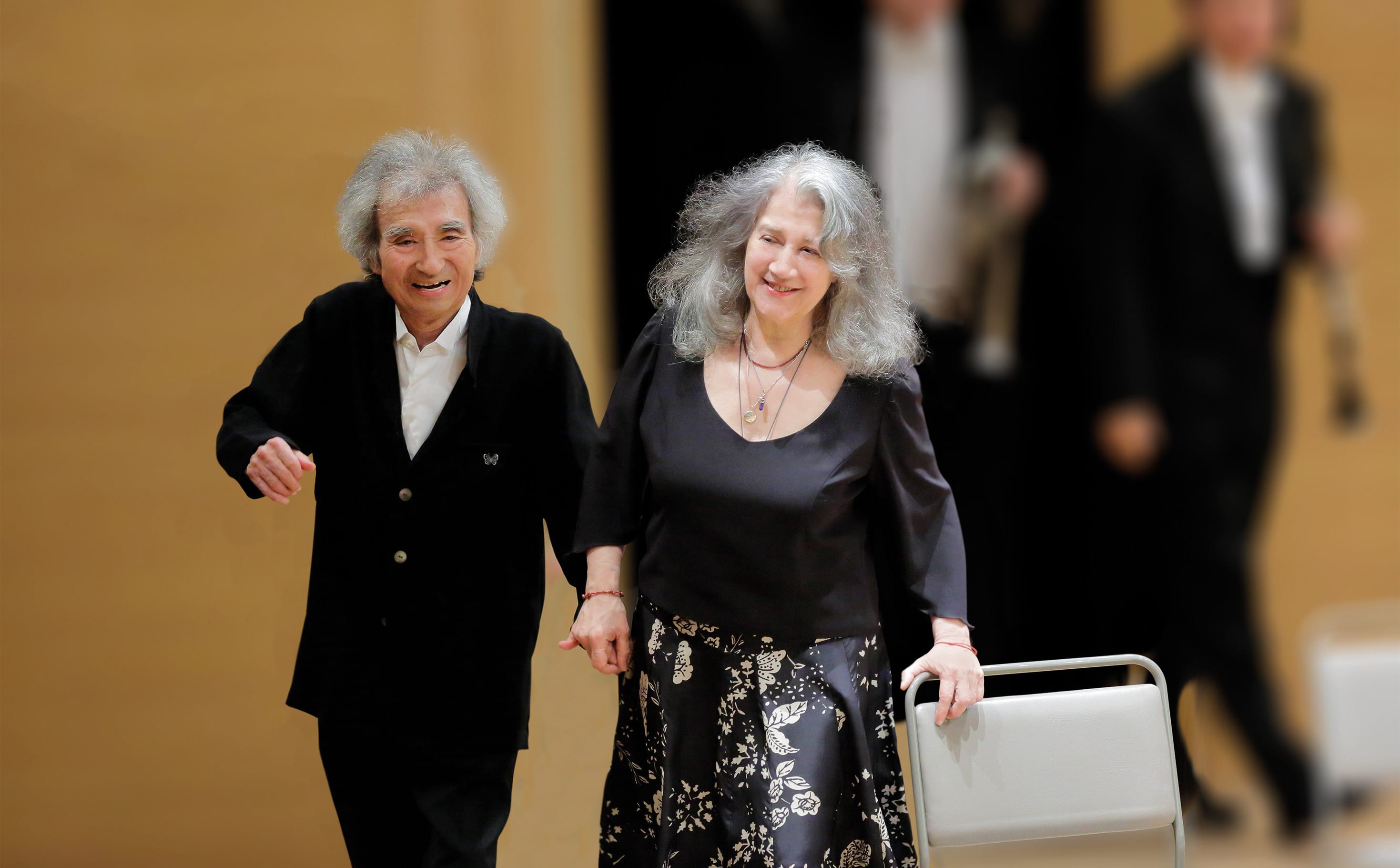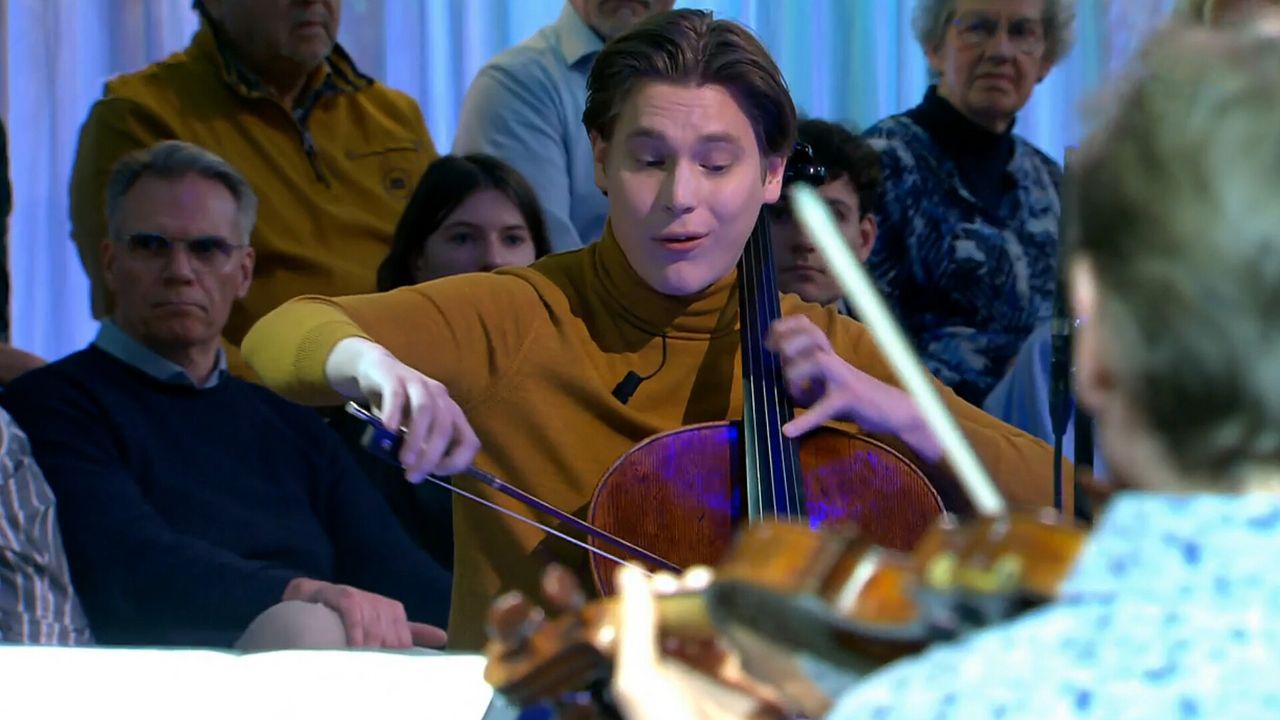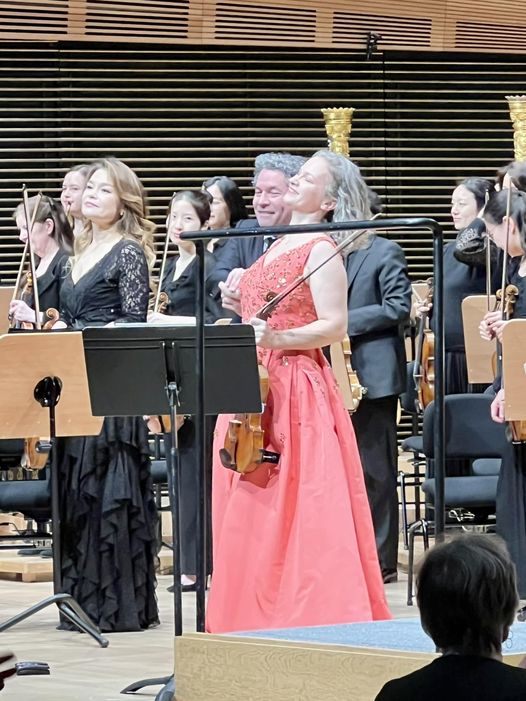Martha Argerich: Brahms is for women who love older men
NewsFrom Olivier Bellamy, “Martha Argerich raconte”. Buchet – Chastel, 2021.
Olivier Bellamy: Do you like Brahms? I once read that it (his music) depresses you.
Martha Argerich: When I play it, I love it, but it’s not the kind of music I’m naturally inclined to. I worked on the Piano Concerto No. 2 with Gulda, but I never played it in concert. It may be a story of libido. Certain pianists adore his music: Irene Russo, Hélène Grimaud, Karin Lechner… They are perhaps women attracted to older men. That was never the case with me. I played his Piano Sonata No. 2 for a while because it is very Schumannian (…) I like Brahms. It was Gulda who didn’t like him very much.”
Newly uploaded concert performance:






So…95% of women?
I LOVE older men, but then really old, they make you feel as if you’re the only woman on earth so you don’t have to put much effort into your make-up as we have to do when going to our daily work.
Sally
So for ASM then.
Cherchez les vieux hommes, puis […?]
she said rather a lot on the subject… I reminisce about “Aimez-vous Brahms?” reading her words 😉
“They are perhaps women attracted to older men. That was never the case with me” – Well, then she should stay away of Bach, Handel and Scarlatti, with this logic…
The irony is – or is it actually consistent to her idea – in fact Brahms was attracted to older women.
At least that‘s the case with the love of his life.
Rather bizarre to speculate about who certain named people are attracted to?
Speculate? She probably knew.
Just as bad if so.
A heart-warming perspective.
Beethoven sonatas are probably for women pianists who love old composers. I´m still waiting her Hammerklavier.
A weird observation since she never met Brahms, nor did I, in my eighties now. I ADORE and worship Brahms. I cant get enough of him. But I also love Schumann and Handel! passionately. And Brahms was not always old; when he was young he was young! And reportedly very handsome with flowing blond locks, as a photo shows. He was constantly falling in love with women (having been rejected by Clara Schumann though they remained life long close friends) but
made the choice to remain celibate because his intense commitment to this art would not allow distractions. His (long) biography (I forget the author’s name) is fascinating in every way. He died in 1987; he almost made it into the 20th century. And he saw a manuscript of a Schoenberg work! But they never met despite being in Vienna at the same time. Imagine what he would have heard and written had he lived longer…Debussy, Stravinsky, Schoenberg, Berg….but Schoenberg greatly admired him and wrote Verklaerte Nacht for the same string ensemble as Brahms’ G major String Sextet, which is one of my favorite pieces in the world (along with the Piano Concerto #2).
Wrong, I’m afraid. Clara Schumann wasn’t diffident about Brahms after Robert died – it was the other way around. The minute Clara became ‘available’ Johannes Brahms ran in the opposite direction.
And Brahms was definitely not ‘celibate’. He had many romances (including his love for Julie Schumann, Clara’s daughter) and nearly married once, but he was ambivalent about marriage. His own mother was many years older than his father and it wasn’t a happy union. That and the Hamburg brothels probably sealed the fate on a married future for Johannes Brahms.
Brahms biography: Malcolm MacDonald, Carl Geiringer?
“Remained celibate”?? Hardly! He just never married!
Salzman again: 1897 of course was Brahms’ death date. Sorry!
Was Clara Schumann the exception that proved the rule?
Brahms is for people who enjoy safe music, much as some women enjoy the safety of being with an older man with money.
Hardly “safe” music; arguably the most complex, well crafted, tense and anguished music ever written, and without a trace of sentimentality. Speculating on his relationship with Clara Schumann is in vain. It was clear to both of them that marriage was out of the question. Clara had one affair after her husband died. Brahms was infatuated with other women numerous times. By celibate I meant never marrying and should have made that clear. Eventually he grew his famous beard as a sort of signal to women that he would no longer be attractive to women and that they shouldn’t get their hopes up. My copy of his biography is in my Brooklyn home and I am embarrassed to say I forget the author. But it is VERY LONG! And chock full of wonderful details about his life and music. What a tragedy that he should die so early, at 64. Imagine what might have come had he lived into the 20th century. But he influenced many composers, including atonal and dodecaphonic composers, because his works were so intricately structured, with the parts of even the longer works all emanating from earlier themes and then being elaborated and extended.
All correct.
It is ok to want safety even if you can’t get it.
But Brahms’ music is not safe at all – it is an elaborate and very personal variation on classical structures so unusual, that no composer afterwards could follow in his footsteps. Schoenberg tried, and see what happened.
Brahms is for people who want to understand the transcendent meaning of music beyond the futilities of temporality.
Tosh.
It’s really sad, actually.
Music isn’t entertainment.
There’s an incredible amount of tension in Brahms, underneath.
In fact when it builds up, he’ll just skip out, like in the D minor concerto, in the development, and he suddenly starts flirting around with a B major twirl…..
Not easy to deal with either…..
But music isn’t entertainment, why do we not even to this day allow more room for what might emerge within it’s beautiful tolerance, stuff that would be found uncomfortable?
But let it out….. You’ll be amazed…..
People don’t know how much tension this causes.
I won’t apologize if I sound to “New Age,” but I talked to Mozart’s mother a lot through a medium, years ago, half a lifetime ago. And she wouldn’t tell me who she was around the time of Jesus (as non linear linear time goes), just that she was around. Turns out she was his little sister, born just before their father died, so Jesus was like her father, and her brother, and she had to see him go through all of that; and then she had to deal with the depth for resonance in her son’s soul for what’s deemed to be entertainment, but is as important as free thought, prayer, tolerance and perhaps even what’s called “religion,” itself…..
She’s died of consumption…
People have things to say…
Where it’s allowed…
let them, there’s no loss there
Uh ok… so what? And why is this a news?
I wonder if the translation (from French?) is correct? It seems a very strange thing to say (especially since Brahms was only 20 when this sonata was published).
To allow, since I mentioned the amount of unworked out inner stress I find in Brahms, which actually exposes what the music could be doing, and is there for. Unliberated stress. Why the world doesn’t allow this in a place where one can actually liberate such emotional undertones, and it should be safe, were music not seen as entertainment. You just have to go there.
It really becomes something beyond that when someone is supposed to say they wrote “that” piece of music, and be trained to have done something you associate with such activity, when it’s again simply going there, and allowing that to take place. Everything that happens by itself because that innate to being human can be pushed to the side. It becomes something akin to saying, when in puberty: “look see this extra hair, I grew that.” It happens by itself, only with music there’s an extra hinge where you have the freedom to go there or not a bit more. Jesus said to me, it depends on whether you open the door.
Thank you for the beautiful Brahms played by Martha Argerich.